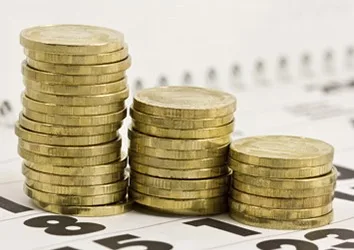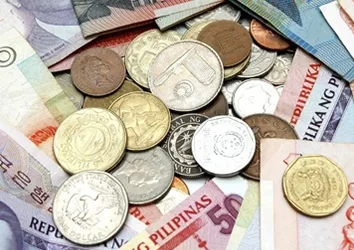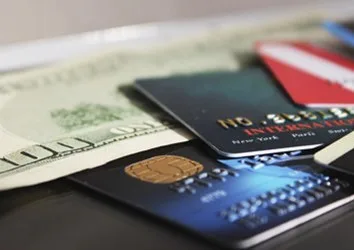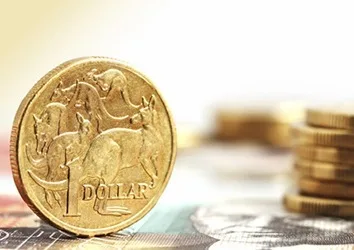Banking products
Investment accounts
Building your wealth is also another important aspect of personal finance. Consider diversifying your assets using the financial tools below.
Looking for a specific feature?
One of the best ways to find an account that suits your needs is to look for the features your want.
Find the right savings account for you
Just some of the financial institutions we compare
Australia offers powerful banking solutions.
How do you choose the best banking option for you in Australia?
Australians are used to banking with the best. The four major banks in Australia; Australia and New Zealand Banking Group (ANZ), Commonwealth Bank Of Australia (CBA), National Australia Bank (NAB), Westpac Banking Corporation (Westpac), are used to enjoying world status for offering quality banking solutions. Each of these banks has around and over AUD$70 billion in market capitalisation according to the ASX 200 List. Of course, these banking solutions do come at a cost. But, despite recent 2016 news of the increasing costs that banks are facing, Australians can still enjoy free accounts like savings accounts. The only requirement in many cases is a minimum balance or opening amount. Sometimes it's even a zero on all the usual costs, e.g. monthly fees, minimum balances, and opening balances! You can see whether Australian bank accounts will ever get as expensive as American bank accounts. Finding the cheapest savings account is of course not the only part of banking in Australia. Let's take a look at some of the best products that banks in Australia offer.
What are the types of banking solutions in Australia?
Savings accounts
- Savings accounts will allow you to deposit money into an account so that it can accumulate interest. Although banks differ in their offerings, there are countless of savings account that won't ask any fees. With a savings account, you have more flexibility in your saving habits than term deposits, but will also generally earn lower interest.
Term deposits
- These are small investment options in the form of a saving account. You get a fixed low-interest rate for a certain amount of time, and you have to deposit a certain minimum amount. For that time, you cannot withdraw the money without paying penalties. There are many banks that will give you a term deposit from as low as AUD$1,000.
High-interest savings accounts
- While motivating you to save more money because of higher interest rates calculating daily, these accounts also offer more accessibility to your money. You can reach your savings goal quickly with a high-interest savings account.
Transaction accounts
- Although there are many different types of transactional bank account offers from, the general purpose is to transact with your world. Transaction accounts make it possible to do EFTPOS transactions, international transactions, store and withdraw money at ATM's, debit orders, credit facilities and student banking.
Debit cards
- Debit cards form part of transaction-based banking and will allow you to make the most of everyday purchasing. Debit cards are allocated to account holders at banks so that they can access their money in their account and buy items with it. Debit cards features are linked to the different bank accounts they represent.
Share trading
- Although share trading isn't a bank account, it is a banking service offered by many banks as a value-added product. If you have a bank account at these banks, you can access the share trading platform and start your share trading career!
Business banking
- A business account is one of the most powerful tools in helping you to run your business. With the right account and a streamlined online banking process, you can save on fees and score great variable interest rates whilst growing your business. Who knows, you might even get connected to a business hub to help your business grow.
Who are the big four banks in Australia?
ANZ
If you take your personal banking to ANZ, you can open many different accounts. These include everyday bank accounts, savings accounts, and term deposits. ANZ banking services are friendly to those migrating and will help to switch over to their online banking system through their online switching service. ANZ offers a solid online banking system that includes the ANZ internet banking platform. The ANZ online banking experience is also useful on mobile and will help you with your banking needs. It was the first of the Australian four to launch Apple Pay.
Commonwealth Bank of Australia
CommBank offers the largest ATM network in Australia, which makes it useful to those who often need cash available to them. They are the leaders when it comes to offering banking solutions through technology. The CommBank online banking system is called Netbank and can help you with international money transfers with support for many popular currencies.
NAB
National Bank of Australia offers flexible savings options for Australians. It often has no fees attached and when you deposit up to $250,000 in a NAB savings account, your money is protected as a part of the Australian Government guarantee. Learn more about the NAB competitive and bonus interest rates here.
Westpac
Westpac has a focus on everyday banking needs and gives its customers easy access to their money. You can use the Westpac online banking platform or Westpac mobile banking experience, while trusting in the encryption technology to keep all the communications secure. They've also added the Westpac Protect security guarantee that safeguards customers from unauthorised transactions. View the Westpac solutions that will allow you to access your money easily.
Australian banking for foreign visitors
Foreigners in Australia contribute to about 28% of the general population. With such a big representation of the total population, it is vital for banks to offer banking solutions to people that do not have official Australian citizenship. You can open a bank account in Australia if you are a student, working in Australia or are migrating to Australia. Learn more about opening a transaction account, savings account or fixed deposit if you're a foreigner in Australia.
How to apply using finder.com.au
If or when you've found an account you'd like to apply for, you can click on 'go to site' or 'open' to be taken to the bank's website. On this page you can enquire for more information, or submit an online application. The application will ask you for your personal and contact details as well as some identification, including your driver's licence number (if you have one), or your passport number. Once this information has been submitted you'll usually receive your application number and other important information within the next few business days, and will generally be able to start using your account within 5 to 7 business days.
What do you need to bank in Australia?
To open a bank account in Australia, you will need the following:
- To apply online, 18 years and older. If you're younger than 18, you can apply at a branch or over the phone.
- Australian residency for the normal application process. See below if you're a foreigner.
- Basic details, including identification in the form of a birth certificate, Australian passport, or driver's licence.
- Certain accounts might require proof of income
- You will need a Tax File Number (TFN) if it is applicable to your current financial context
Australian financial institutions
Australia's banking industry is made up of a number of institutions, including: Small, medium and large banks A bank is a deposit taking institution. Australia has four major banks known as the 'big four' including the Australian and New Zealand Banking Group (ANZ), National Australia Bank (NAB), Commonwealth Bank of Australia (CBA) and Westpac Banking Corporation. There are a also a range of smaller banks, some of which are owned by the big four.
Credit unions, mutual banks and building societies These are member-owned banking cooperatives which are regulated in the same ways as banks, and offer the same products and services. These cooperatives aren't publicly listed and so profits go back to members and services rather than shareholders.
Australian Banking regulations
Australia has a well regulated banking industry with constant reforms aiming to make the system fairer and more transparent to consumers. The regulator for Australia's financial services system is the Australian Prudential Regulation Authority (APRA). APRA works to ensure the industry upholds prudential standards and enforces regulations when institutions do not.
Ask a question





















Do you have a honeymoon period?
Hi Quentin,
Thanks for the question.
You can find information about honeymoon period home loans in our guide and compare them to other loans.
Before applying, please ensure that you meet all the eligibility criteria and read through the details of the needed requirements as well as the relevant Product Disclosure Statements/Terms and Conditions when comparing your options before making a decision on whether it is right for you.
Cheers,
Marc